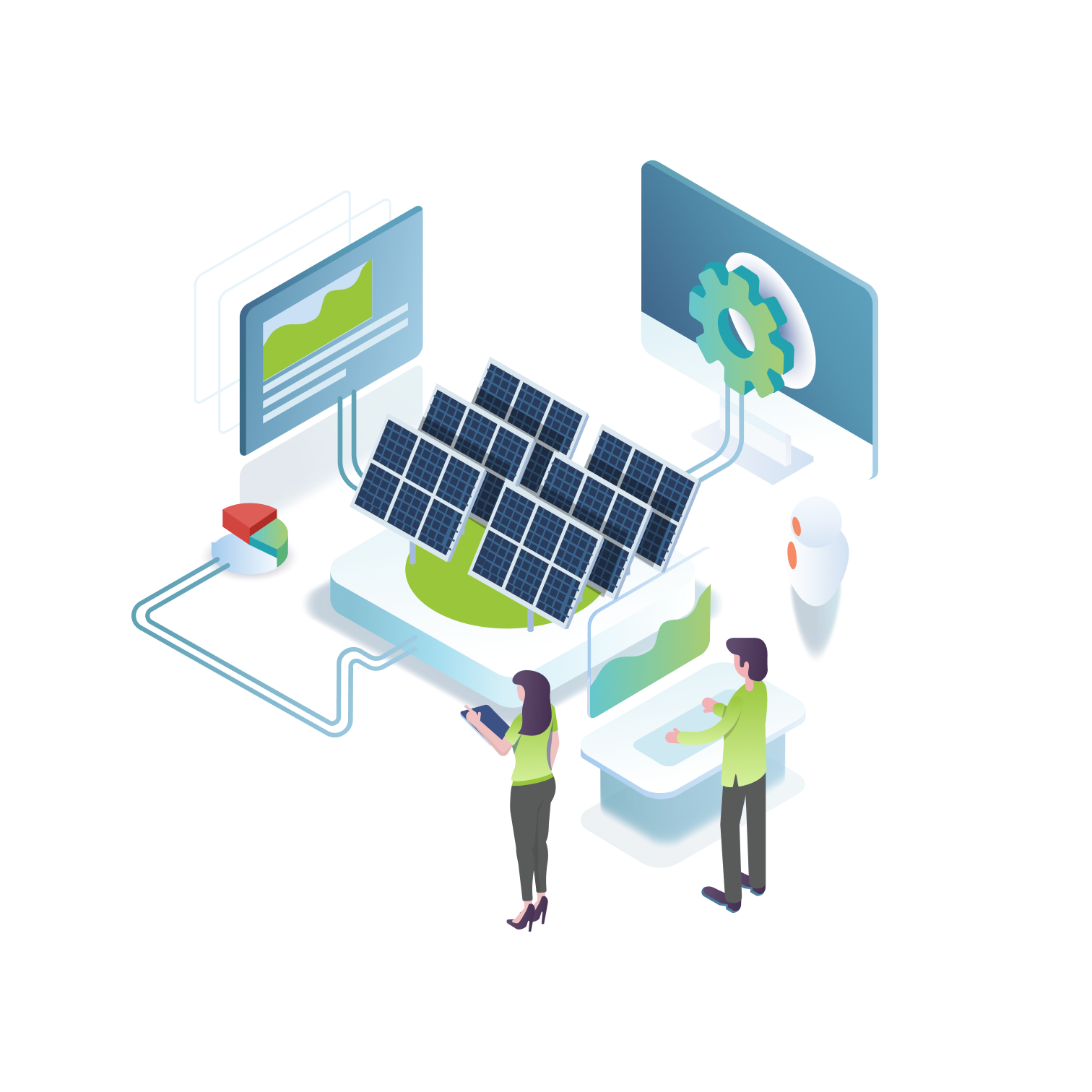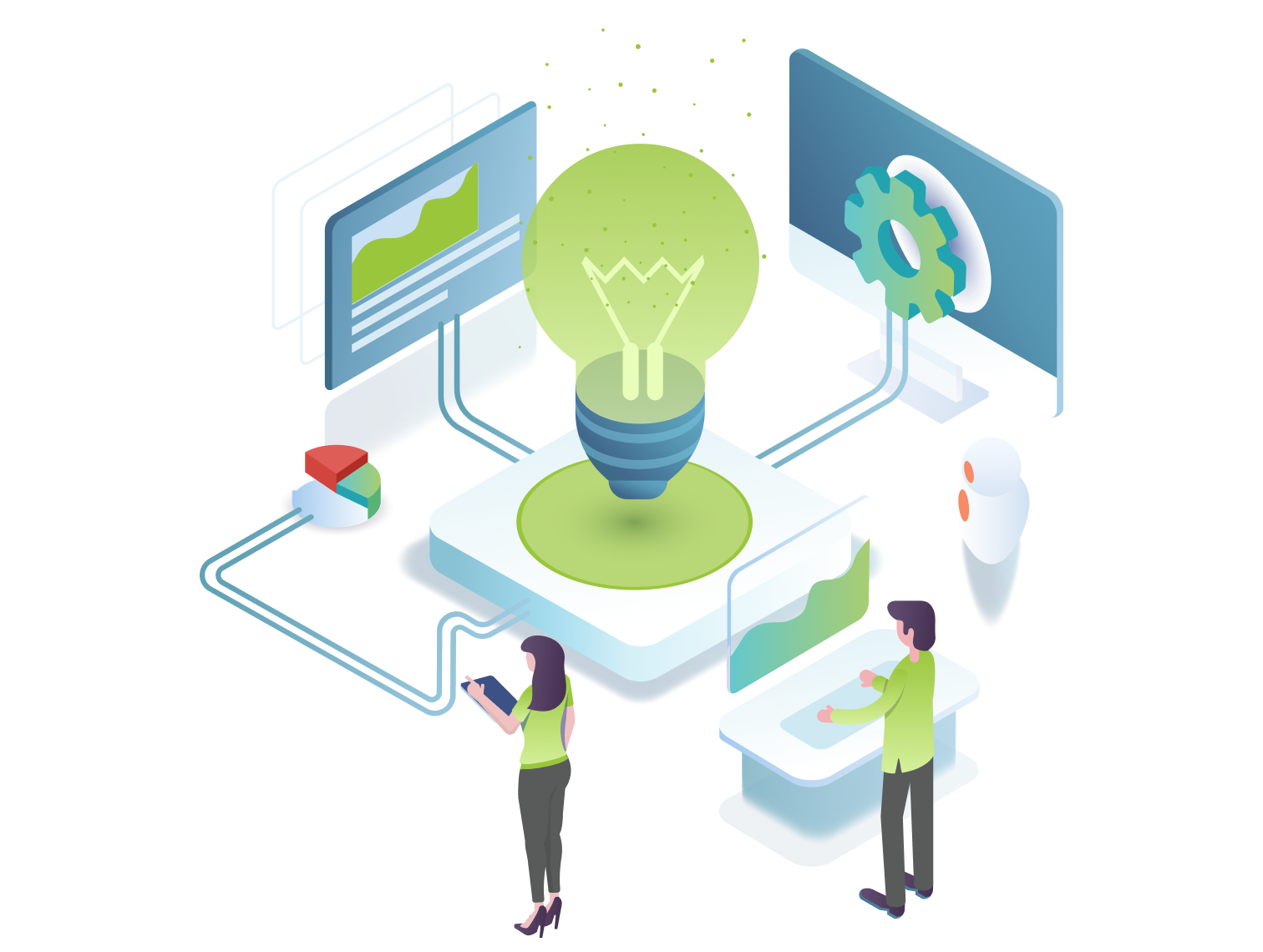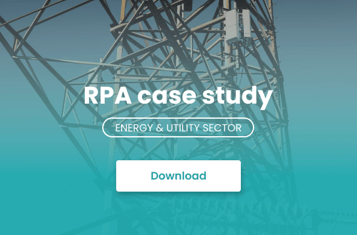Which processes can be automated in Energy and Utility industry?

- RPA
- UIPATH
- ROBOTIC PROCESS AUTOMATION
Energy & Utility is one of the most consumer-dependent industries which makes this segment even more special. Our society depends on energy, water, and gas, we can’t imagine our daily lives without these services. Considering the high number of human-generated transactions - for instance, to pay the bill for the listed needs - the probability of human-made errors significantly increases. This is when RPA comes into the picture, to manage repetitive workflows and tasks. 
E&U companies manage thousands of metering, installation, maintenance, billing consumption-, and customer management tasks – these are just a few examples from vital processes – to provide the highest customer satisfaction. These repetitive processes can be automated of course. According to Capgemini's report, the Utility & Energy sector could realize cost savings from $237 billion to $813 billion if intelligent automation were implemented. Robots are available 24 hours a day, 7 days a week, 365 days a year while significantly decreasing human-made damages. It is no question in 2021, why using robots in the EU&R sector is a must.
As in our previous blog post, Robotic Process Automation (RPA) focuses on automating repetitive processes based on rules to imitate human interactions with different applications at the same time. E&U industry has a wide variety of processes that robots can automate. In Capgemini’s report 47% of executive participants said that the cost-efficiency of RPA were under-estimated in Energy and Utility sector as they perceived the following:
- Improved customer satisfaction
- Quicker access to customer insights/data
- Increase in inbound customer leads
- Quicker breakeven
- Faster time to launch new products
- Improved cross-selling
- Reduced customer churn rates
E&U companies read the consumption meter before they send the bills to their customers and it is made by humans. Workers sometimes generate bills based on incorrect numbers that lead to under-, or overcharging the consumer. Errors deriving from not validated data can result in destroying company reputation and the loss of trust from consumers’ side. Automating meter reading validation reduces human-made errors to zero, reduces time and cost. RPA robots detect the data failure in the system in seconds, helping customer –facing departments to provide the highest quality of services.

Another critical task for utility companies is processes in connection with billing and statements. Automating payments with RPA technology helps to manage receivables, process payments, and to correct not validated bills created for consumers. As you can see, RPA is the biggest help for E&U companies for two main reasons: making general, vital processes fast and cost-efficient, thus increasing the level of customer satisfaction. In the case of payment, RPA robots can be taught to provide deep analytics and better data management forecasts.
Every E&U organization follows strict processes when setting up a new account in the system, it is quite time-consuming to save the right, real customer information. RPA can speed up account opening processes and reducing errors of saving unreal information provided by the customer. RPA double-checks the validity of information based on automation rules and fills all the fields if the information matches the pre-set rules.
These are just a few examples of RPA solutions in the Energy and Utility sector, if you’re interested in more custom automation, contact us here. Grape Solutions is an official silver partner of UiPath, helping clients with basic & complex RPA projects globally.
Share this post on social media:
Posts by Tag
- IoT (17)
- Smart cities (16)
- E-mobility (14)
- Energy Management (10)
- Mobility (9)
- Software development (9)
- Marketing automation (6)
- RPA (6)
- Robotic Process Automation (6)
- electric vehicles (6)
- Internet of Things (5)
- IoT solution (5)
- Marketing software (5)
- Smart Building (5)
- Business Intelligence (4)
- Custom applications (4)
- IoT platform (4)
- Uipath (4)
- electric charging (4)
- IoT devices (3)
- Properties (3)
- AI (2)
- BI (2)
- Montu (2)
- Multi-device functionality (2)
- Omnichannel (2)
- RPA Budapest (2)
- Smart city (2)
- UX design (2)
- app development (2)
- artificial intelligence (2)
- crm (2)
- crm software (2)
- electric charging station (2)
- machine learning (2)
- marketing campaign (2)
- optima (2)
- API Testing (1)
- Agriculture (1)
- Automated Testing (1)
- BYOD (1)
- EV (1)
- Energy Communities (1)
- Event insights (1)
- Event report (1)
- Green IoT (1)
- HR (1)
- IT Outsourcing (1)
- ML (1)
- Power BI (1)
- Resource Management (1)
- Smart Home (1)
- Smart Office (1)
- TaaS (1)
- UX/UI Design (1)
- Xamarin (1)
- cloud (1)
- cloud computing (1)
- cross-selling (1)
- data driven marketing (1)
- digital twin (1)
- dynamic customer segmentation (1)
- esg (1)
- inbound marketing (1)
- industry 4.0 (1)
- onprem (1)
- onpremise (1)
- scalability (1)
- software robot (1)
- testing as a service (1)
- upselling (1)
Recent Posts
Read On

- IOT
- SMART BUILDING
- ENERGY MANAGEMENT
- SMART CITIES
Emerging technology trends for smart buildings in 2023
The last three years have created a challenge-full period for property owners, think about COVID-19, when many of use were forced to change our working environment to our homes or the recent energy crisis that still seems to form our daily lives in 2023. Hybrid office solution became a usual phrase...

- IOT
- INTERNET OF THINGS
- ENERGY MANAGEMENT
- SMART CITIES
What is an energy management software, and how can you benefit from it?
Energy prices are rising daily as the demand for energy for residential, commercial or business use increases. According to Enerdata, a 4% increase in European electricity consumption has occurred since 2020. To reduce operational costs and facilitate energy-efficient consumption, IoT-based energy...

- RPA
- UIPATH
- ROBOTIC PROCESS AUTOMATION
Which processes can be automated in banking and financial services?
The Banking and Financial industry, due to technological advancements, is continuously changing. The sector is under pressure to lower costs while companies need to provide the highest quality services to their clients to remain competitive on the market. Robotic Process Automation (RPA) is a...




